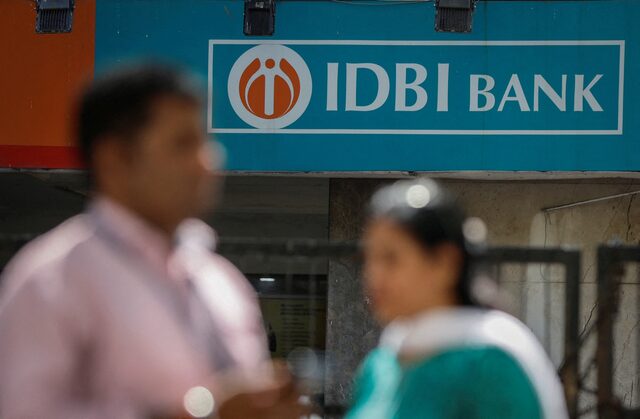SBI Research report, authored and led by Soumya Kanti Ghosh, Group Chief Economic Adviser, SBI, expects the government to clarify the possible stake sale by LIC and the Centre in IDBI Bank, during the upcoming Budget
Our Bureau
New Delhi
Asserting that banks are in good condition, SBI Research suggested that the central government should take a stance on the disinvestment of public sector banks (PSBs).
In a comprehensive report put out by SBI Research, ahead of the much-awaited full Budget for 2024-25 to be tabled on July 23 – the first Budget under Modi 3.0, it asserted that divestment needs a concrete roadmap for attracting capital and confidence in financial institutions (FIs).
Disinvestment or divestment typically refers to the sale by the government, partly or fully, of a government-owned enterprise.
SBI Research report, authored and led by Soumya Kanti Ghosh, Group Chief Economic Adviser, SBI, expects the government to clarify the possible stake sale by LIC and the Centre in IDBI Bank, during the upcoming Budget.
“Government and Life Insurance Corporation of India are selling an almost 61 per cent stake in IDBI Bank. They invited bids from buyers in October 2022. In January 2023, DIPAM received several expressions of interest for the IDBI Bank stake on offer,” its report claimed.
Given the complete change sweeping the PSBs under successive reforms and policy support, the roadmap ahead could be to reduce ownership stake in PSU banks, greater HR autonomy, further investments in digital and IT infrastructure and aligning priority sector lending (PSL) framework with priorities.
Also, it suggested that the divestment targets need to be more realistic without hesitations or deliberations given the maturity of Indian banking system.
It added that there is a need to scale up collaboration with global peers.
In the interim budget tabled in February this year, the 2023-24 divestment estimate was revised downward to Rs 30,000 crore from the previously budgeted Rs 51,000 crore. Furthermore, the target for 2024-25 has been set at Rs 50,000 crore.
Separately, according to a recent CareEdge Ratings report, there is total divestment potential of approximately Rs 11.5 trillion at current market capitalization, assuming the government retains control over the company’s governance by maintaining at least a 51 per cent stake in these public undertaking companies and divests any excess shares.
Of this Rs 11.5 trillion divestment potential, public sector enterprises could contribute around Rs 5 trillion, while public sector banks and insurance firms could potentially add another Rs 6.5 trillion, the rating agency’s report asserted.
CareEdge believes that the government will maintain its target of divestment (as a miscellaneous capital receipt) at Rs 50,000 crore in the upcoming budget to be tabled on July 23, the same as that given in the interim Budget.
Finance Commission constitutes five-member Advisory Council
The Sixteenth Finance Commission has constituted an Advisory Council with five members — DK Srivastava, Neelkanth Mishra, Poonam Gupta, Pranjul Bhandari, and Rahul Bajoria.
Poonam Gupta shall be the Convenor of the Advisory Council.
The role and functions of the Advisory Council will be to advise the Commission on any of the Terms of Reference (ToR) or related subjects that may be of relevance.
To assist in the preparation of papers or research studies and to monitor or assess studies commissioned by the Finance Commission, thereby enhancing the Commission’s understanding of the issues in its ToR.
To help broaden the Commission’s ambit and understanding by seeking the best national and international practices on matters pertaining to fiscal devolution and improving the quality, reach, and enforcement of its recommendations.
The 16th Finance Commission was constituted by the President on 31st December 2023 with Arvind Panagariya as Chairman. The commission has been constituted to make recommendations covering a period of five years commencing on April 1, 2026.
Additionally, the commission is also mandated to review the present arrangements for financing Disaster Management initiatives, with reference to the funds constituted under the Disaster Management Act, 2005 (53 of 2005), and make appropriate recommendations thereon.
According to the 15th Finance Commission’s recommendations, the centre should allocate 41 per cent of tax collection to states. This is known as vertical devolution. The distribution among states, or horizontal devolution, is based on several criteria like demographic performance, Income, population, area, forest and ecology, tax and measures to check fiscal deficit by individual states.

























